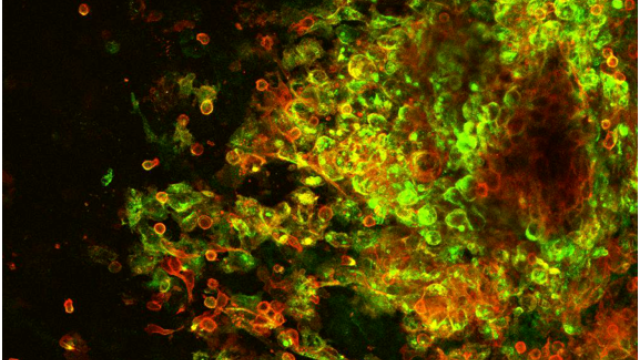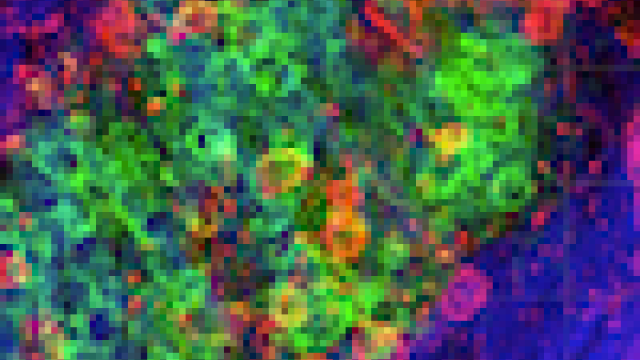
Andrew M. Blakely, M.D.
- Center for Cancer Research
- National Cancer Institute
- Building 10, Room 4-3760
- Bethesda, MD 20892
- 240-858-3610
- andrew.blakely@nih.gov
RESEARCH SUMMARY
Dr. Blakely is a surgical oncologist specializing in soft tissue sarcomas and peritoneal surface malignancies. Primary focuses of his research include:
1) Characterizing differences in gastrointestinal stromal tumors among and within patients.
2) Characterizing differences in peritoneal mesothelioma among and within patients.
3) Understanding influences of the microbiome on disease development and progression.
Areas of Expertise
Information for Patients
Learn more about our clinical trials and the highly specialized care teams that lead them.

Andrew M. Blakely, M.D.
Clinical Trials
Research
Why am I at the NIH? To be able to truly focus on specific, rare diseases. I have tailored my practice to focus on two diseases exclusively: gastrointestinal stromal tumors (GISTs) and peritoneal mesothelioma. Nowhere else can a physician hyper-focus on only two histologies.
Why is this important? Both GISTs and peritoneal mesothelioma are characterized by profound heterogeneity, even within relatively rare diseases. Both have germline genetic drivers and non-genetically-driven varieties. Surgery is a critical component of multi-modal therapy for both diseases. Much remains to be learned about each, and the NIH is uniquely positioned to be able to do just that.
I perform cytoreductive surgeries for GISTs and peritoneal mesothelioma that are beneficial to the patient. We aim to provide improved control of disease in conjunction with patients' medical oncologists. We balance the potential benefits of aggressive cytoreduction with the perceived benefits of the same in the global context of patients' disease. Every patient should have a second opinion before being deemed unresectable, and we can provide that as well as reinforcing the fact that with continually improving systemic treatment options, resectability is a dynamic assessment that can change over the course of treatment.
Publications
Bio-Pick, Place, and Perfuse: A New Instrument for 3D Tissue Engineering
A Collaborative Surgical Approach to Upper and Lower Abdominal Cytoreductive Surgery in Ovarian Cancer
Role of Immune Microenvironment in Gastrointestinal Stromal Tumors
American College of Surgeons National Surgical Quality Improvement Program as a Quality-Measurement Tool for Advanced Cancer Patients
Elevated C-Reactive Protein as a Predictor of Patient Outcomes Following Palliative Surgery
Biography

Andrew M. Blakely, M.D.
Dr. Blakely completed a Bachelor of Science in Biomedical Engineering followed by medical school at Drexel University. He went on to general surgery residency at Brown University. During residency, he spent two years of dedicated research time at the Center for Biomedical Engineering developing a device for tissue engineering applications. That work then led to the awarding of a National Science Foundation grant and a patent. Dr. Blakely then completed his fellowship in Complex General Surgical Oncology at City of Hope National Medical Center. From there, he joined the Surgical Oncology Program of the National Cancer Institute as an Assistant Research Physician. His scope of practice has evolved to focus on clinical and translational research in gastrointestinal stromal tumors and peritoneal mesothelioma.





